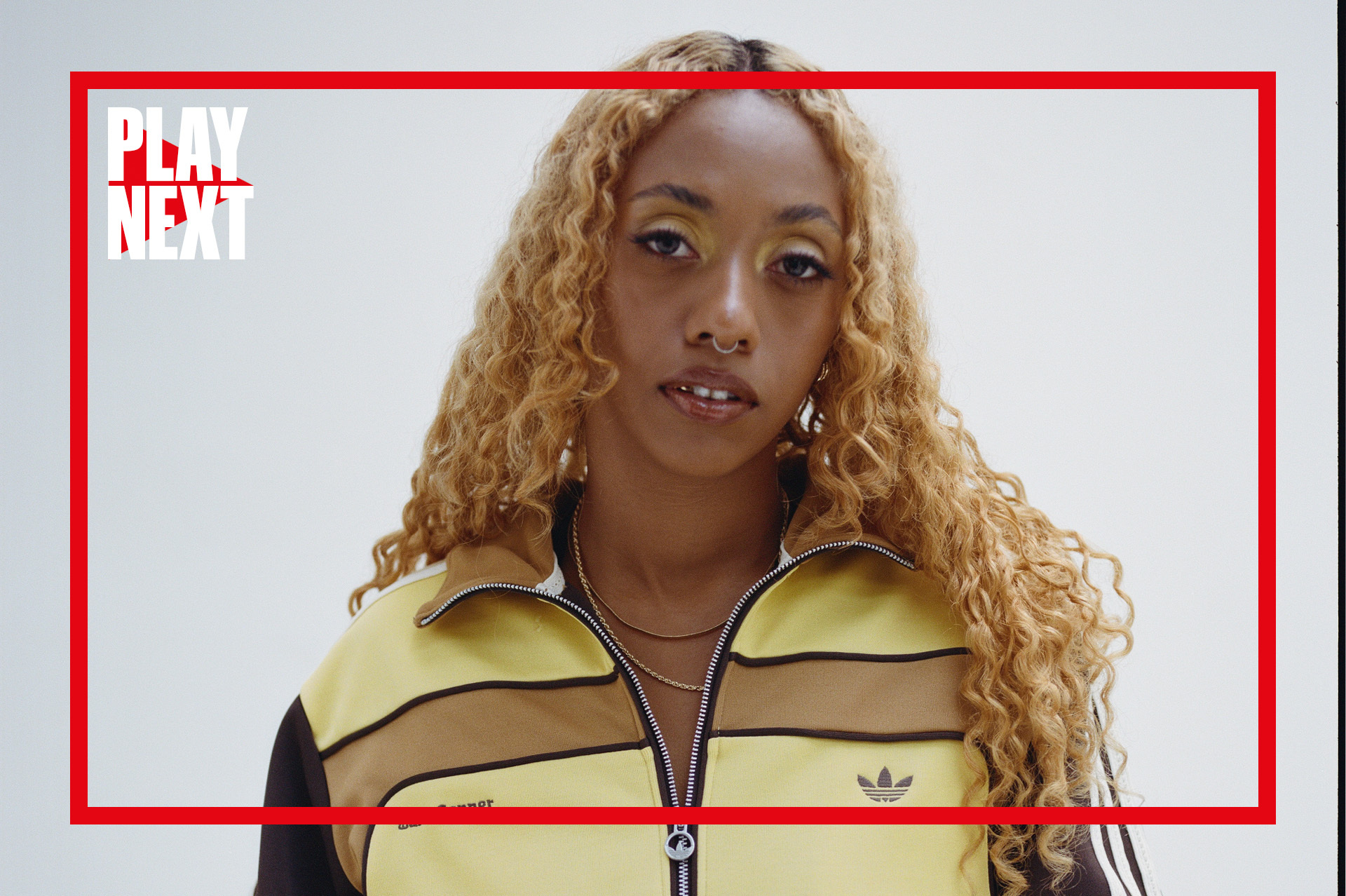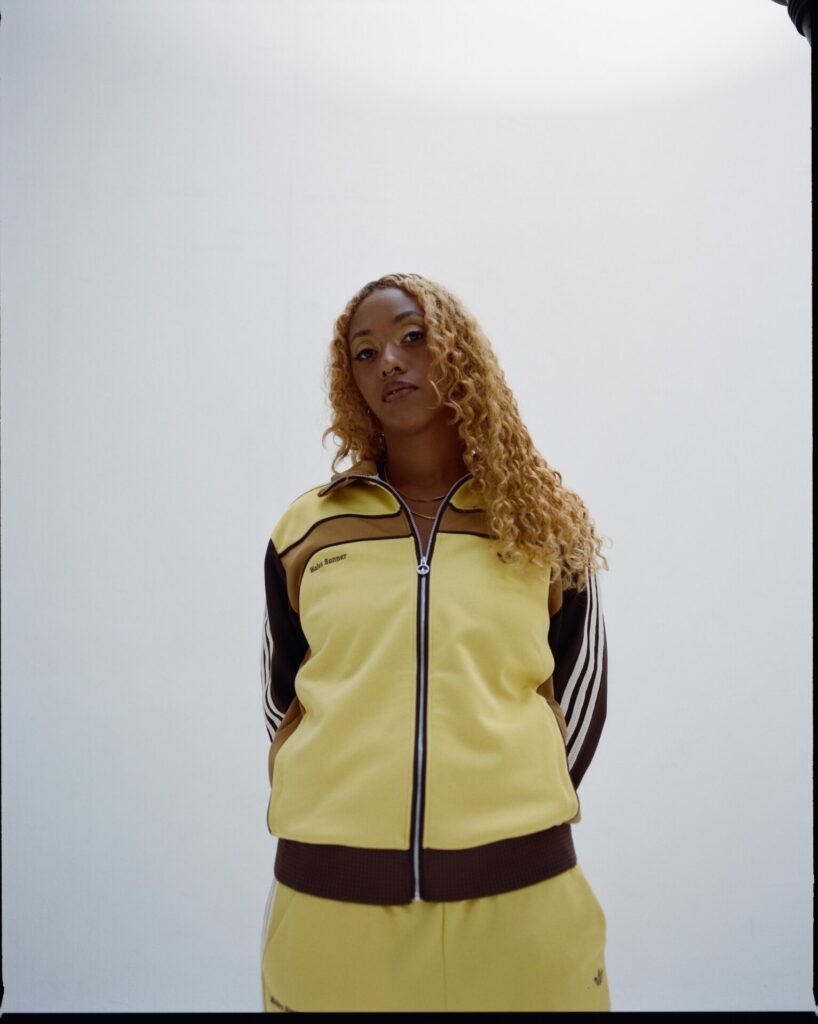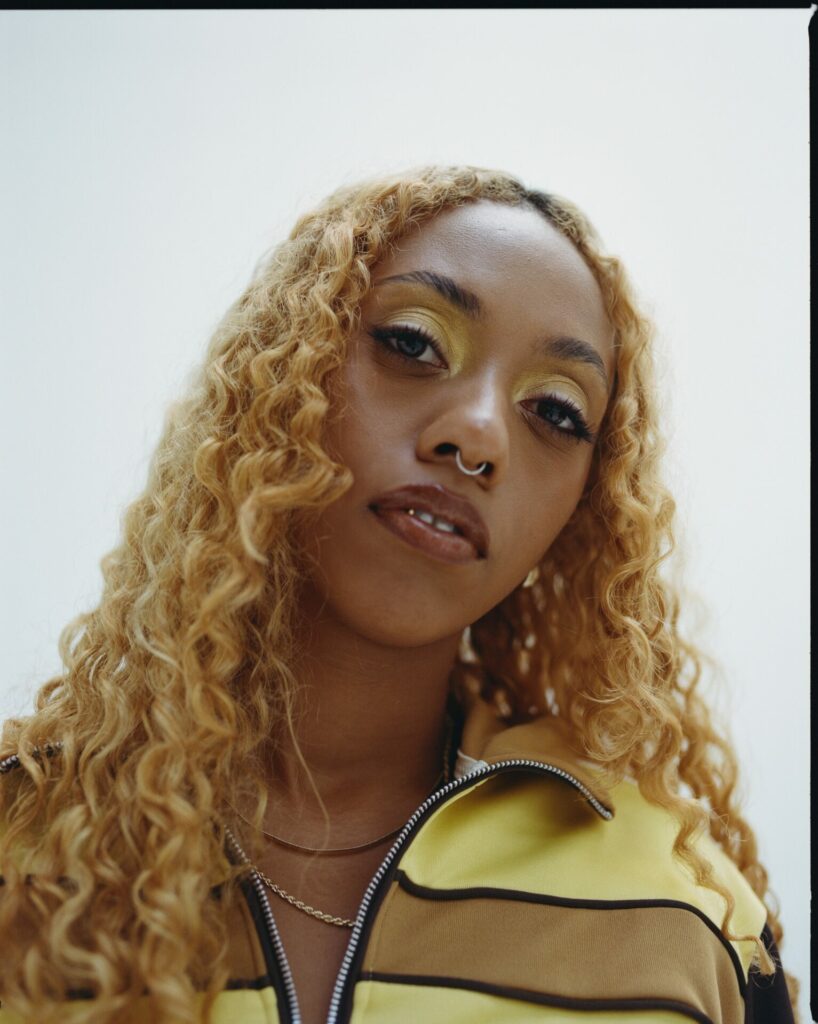Meet Nia Archives, the jungle maverick blending influences from Kingston to Rio
Following her packed summer festival schedule, the UK producer talks early influences, DJing jungle raves in America, and the impact of Brazil on her new single ‘Baiana’
By Joe Goggins

There are acceptance speeches that leave plenty to the imagination; Nia Archives’ at the NME Awards back in March was not among them. “I fucking love jungle music!” the Leeds trailblazer shouted as she took home the gong for Producer of the Year.
It’s something that we already knew; on her releases to date, particularly the EPs Headz Gone West and Forbidden Feelingz, everything from her sample selection to the effervescent energy of her work suggests an unbridled passion for her genre of choice, one born of her Jamaican heritage but solidified when she crossed the Pennines to Manchester and immersed herself in rave culture.
“It doesn’t matter who your parents are,” she continued from the stage at the NME ceremony. “It doesn’t matter where you come from. You can do what you want with your life, and you can make summat of yourself.” It is precisely what she’s done, too, undeterred by a relative dearth of visible Black female producers within jungle. She’s broken new ground as she’s imbued her uptempo approach with emotional honesty and a refreshing openness on mental health, and she’s blended disparate influences from Kingston to Rio de Janeiro in maverick fashion.
Here, as she winds down from a blistering “summer of jungle” that saw her play huge sets at Glastonbury, Reading and Leeds, and Notting Hill Carnival, she reflects on her journey so far, and the influence of Brazil on new single ‘Baianá’, as well as her apparently limitless ambition.
Did moving to Manchester help bridge the gap between the music of your heritage and rave culture?
Nia Archives: Yeah, I think so. I’m half-Jamaican, so I’ve grown up with sound system culture, with dancehall and jungle. I grew up loving the basslines in dancehall tunes, and I found that jungle tends to have similar rhythms; plus, there’s a lot of sampling of reggae in jungle, especially on stuff out of London like Saxon, and those sound clashes. There’s a lot of crossover between Britain and Jamaica there, and I’m proud of my dual heritage. I feel like it’s something I didn’t get the opportunity to express when I was younger.
You felt like jungle was something that spoke to that?
Nia Archives: Yeah. I loved music from when I was a kid; my family used to go to Pentecostal church, so that exposed me to choirs, and I taught myself to play instruments when I was younger, just following along on YouTube. My ex-stepdad was a producer, too, so that was a lot of exposure to music when I was younger. It wasn’t until I moved to Manchester that I started thinking about really writing.
What made you get started on your own work?
Nia Archives: I had a lot going on in my life when I moved, and I think I needed a way to express it. I started out making mainly downtempo music, which was really depressing, and it was going out in Manchester that moved me towards what I’m doing now. I was going out and partying, and I knew I wanted to get that same feeling when I listened to my own music, so I started to make stuff that lined up with that. I was freestyling at raves, and I never really realised I had a voice until I got up and did that.

Was there a moment in time when you felt like you’d made a breakthrough with the kind of sound you wanted to achieve?
Nia Archives: I’m going to say when I moved to London. I started out trying to make faster, dancier stuff when I was still in Manchester, but a lot of it was really awful; I was just experimenting, throwing ideas out there, figuring things out as I went along. I mean, I didn’t know what a metronome was; everything was out of time. But I kept working at it, and found that there was something in this contrast of writing emotional songs about real-life situations, and pairing that with scatty drums, which are my favourite part of producing. It was weird, but it worked.
“I’m half-Jamaican, so I’ve grown up with sound system culture, with dancehall and jungle”
— Nia Archives
Do you feel like you make music for yourself first, and if other people like it, that’s a bonus?
Nia Archives: Yeah. I personally am my biggest fan. I love my music! It’s really selfish, but I love that thing of feeling an emotion, and then making music that sounds like it.
How much do you think your personal and emotional life influences the music?
Nia Archives: It’s a big part of it. One person I really love and am inspired by is Burial; you won’t hear it in the music so much, but more in terms of how you can hear so much of his personality in his music. We know hardly anything about him, but from his songs, you can find out what his favourite show is, and which video games he plays. You don’t need to show everything, to be so upfront about everything. If you want to hear my story, and know about what I’m going through, listen to the music; you’ll learn a lot about me through that. I think even things like the samples I choose, or the breaks that I use, or the way I program things — they all say a lot about me.
In the past, you’ve talked a lot about American influences, particularly Black women artists from the US: Erykah Badu, Lauryn Hill, Nina Simone. Did you have similar role models from the UK?
Nia Archives: I’m definitely inspired by Black American women, but there’s British influences, too. Roots Manuva is a massive one for me, especially Brand New Second Hand; that’s an album that really speaks to British-Jamaican people. Just hearing him reference things like ‘cheese on toast’ in his lyrics, you know? There’s not enough Black British women in this space, even with heroes of mine like DJ Fly and Kemistry, but hopefully what I’m doing helps to normalise representation. You’ll see a lot more of us in the future.
How did ‘Baianá’ come about? Where is that Brazilian influence from?
Nia Archives: I’m not sure. I’ve always loved samba and bossa nova, and Brazilian culture more widely. I’ve sampled a few tunes that I really love before, by some of the Brazilian jungle dons like DJ Marky and DJ Patife. And then, I found this track called ‘Baianá’ that I loved by this choir, Barbatuqes. I heard that and thought, “This is a vibe.”
And you ended up in Brazil to shoot the video?
Nia Archives: Yeah! I think I kind of manifested that. My friend Delphino, who I’ve made a few videos with, he’s Brazilian, and I said to him last year, “We’re going to go to Brazil together one day.” I didn’t know it’d be this soon, but I was so drawn to it — it seemed inevitable. We went into a favela community to film, and meeting the locals, playing football with the kids who dance in the video, that was such an experience. People seemed to appreciate that I’d paid homage to their culture with ‘Baianá’, even though I’d made it into something so different.

Do you feel like you have more creative freedom than ever now?
Nia Archives: I think I’ve always done the opposite of what’s expected of me. Music is a compulsion for me, but I’m always going to do what makes me happy, and make what I want to hear, whether that’s a samba tune or an indie jungle track. If I can listen to it 100 times and still love it, then maybe other people will too — as long as it’s something I genuinely love. I’m still taking inspiration from all over the place; I can hear something on YouTube and get an idea and it all spirals from there, but I love old-school rave tapes too.
Does some of that confidence from playing live? You had a pretty big summer…
Nia Archives: The crowds have been amazing. It’s just been really cool seeing how the reactions have been; going to America was kind of a culture shock, because jungle’s being rediscovered over there, it’s not as mainstream. That’s why it’s cool to be DJing there and playing something like a jungle mix of Dizzee Rascal’s ‘I Luv U’ and just seeing people going crazy, having no idea what it is but being excited to discover something new. Me being selfish extends to DJing, too; I’ll play underground stuff from people with 200 Soundcloud followers, really headsy stuff. It’s just interesting to see what gets people going.
What’s the long-term goal? Do you see yourself putting a full-length album out?
Nia Archives: ‘Baianá’ is from another EP, which is going to have a really different feeling to the last one. That was a club record; the next one is going to be the same Nia Archives, but a lot more refined, a lot more focused on the songs. Half of them, I’m like, “Oh my gosh, I can’t believe this is jungle.” And it is! It’s still 170bpm, but there’s just a lot of musical elements to it. I want the first album to be really special; Lauryn Hill only made one, but it was so iconic! I’m aiming for that level of musicality. Maybe next year. That’d be amazing.
